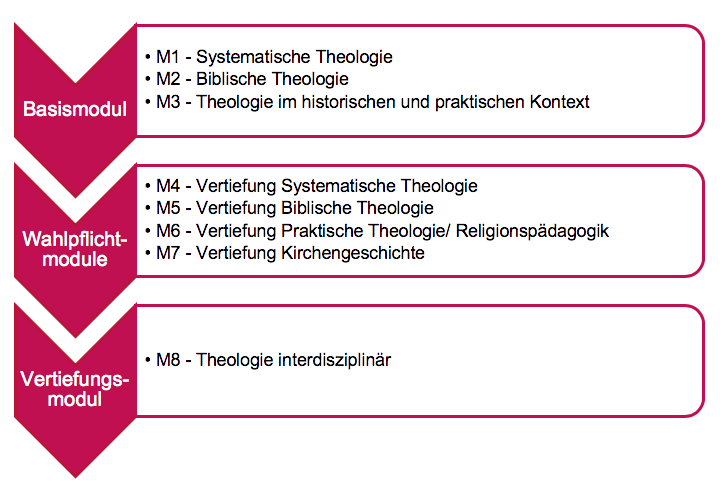Study structure
The content on this page was translated automatically.
The study program begins with a methodological and content-related introduction to the four subject areas of Catholic theology (Biblical, Systematic, Historical and Practical Theology) by completing three basic modules. Building on this, the student will deepen his or her knowledge in two subject areas of his or her own choice (compulsory elective modules). Another in-depth module is both interdisciplinary and interreligious in orientation.
